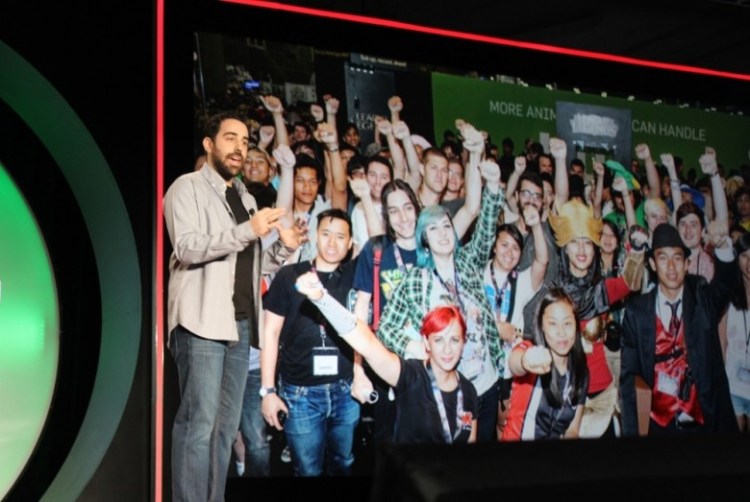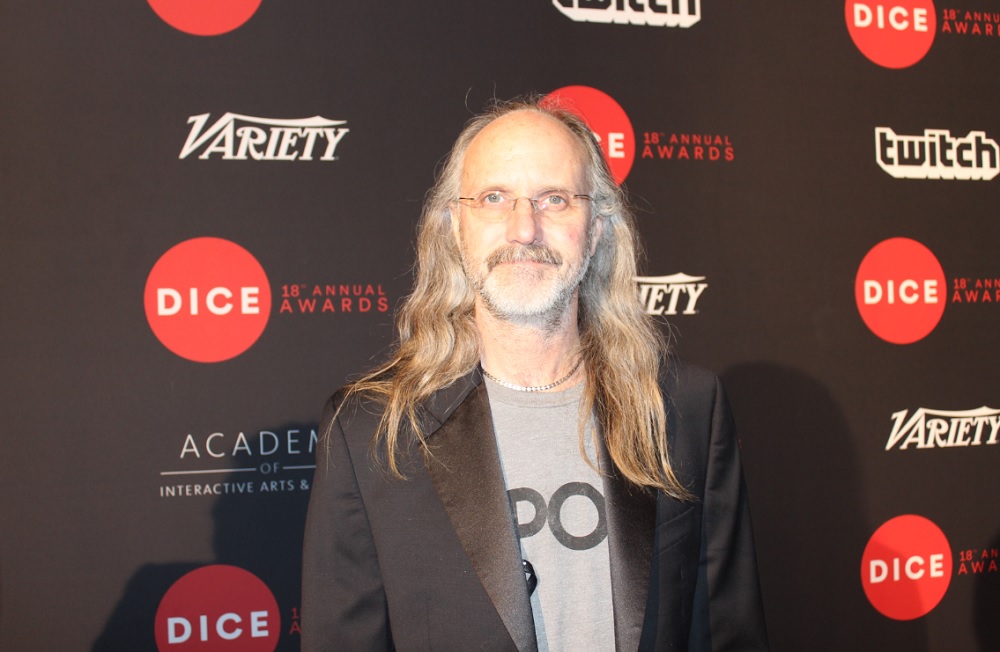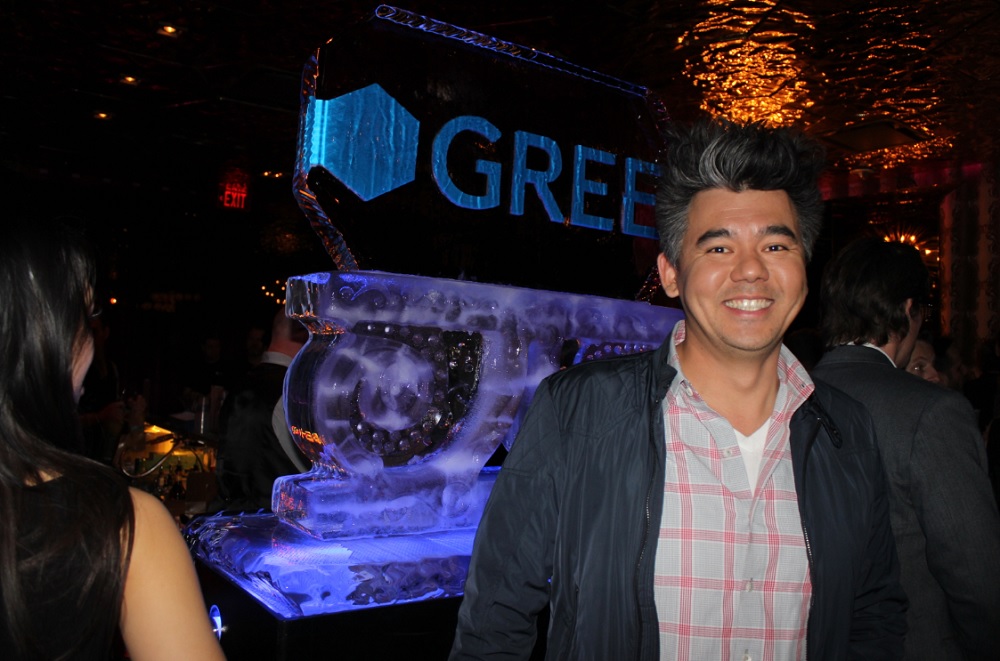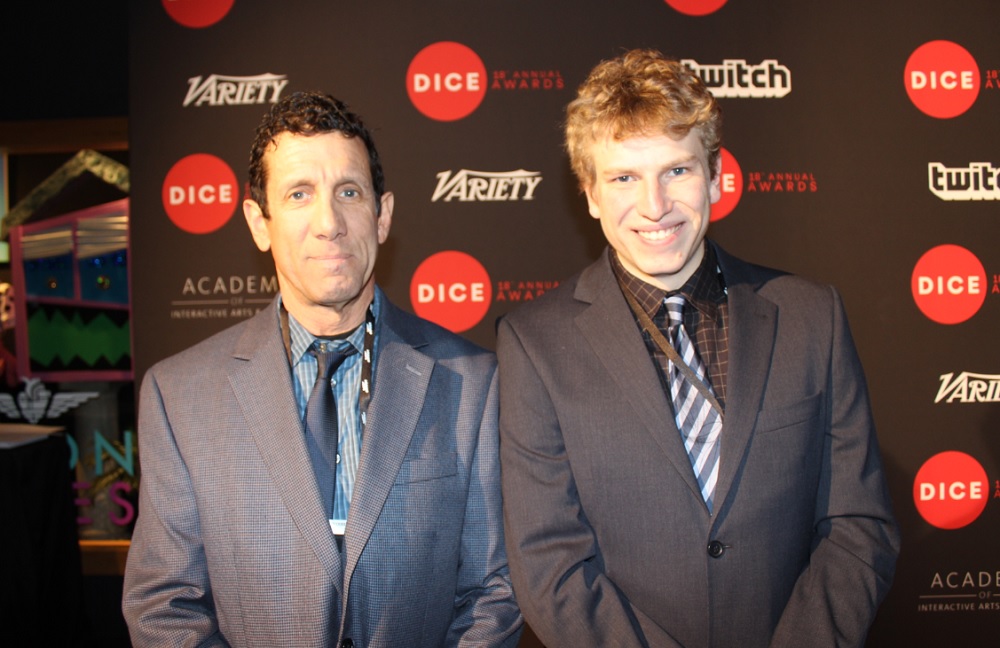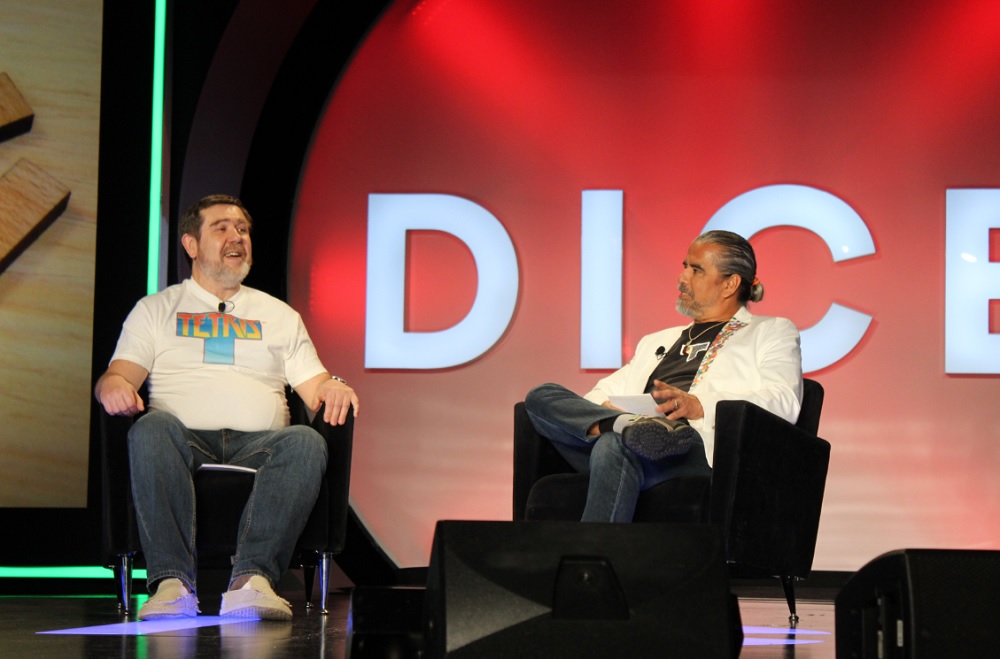LAS VEGAS — There were plenty of times in the past when everyone was fretting about the state of the game industry. But this week at the DICE Summit, the elite game industry event in Las Vegas, the industry showed it had grown up and was spreading in many different directions.
Games have become a $70 billion global business, and many predict that it will grow into a $100 billion business in just a few years.
So many of the segments of gaming are doing well, and the core console and PC business leaders were joined at the event by indie game developers, mobile gaming giants, and international conglomerate executives. Everyone had gaming in their genes, and they were passing it on from one generation to the next.
“I’m not worried about gaming as much now,” said Rich Hilleman, chief creative director at Electronic Arts, which won the big award for Game of the Year for Dragon Age: Inquisition. “Back in 2009, the industry was shrinking and it was bad. But there are so many indies that are growing now and thousands of new games.”
For me, the conference had a theme of passing a torch, or providing lessons from one generation to the next. Brandon Beck, chief executive of Riot Games, gave the best talk of the event in an opening talk about how to properly value, attract, inspire, and retain great game development teams. His philosophy has helped the company earn a reputation as one of the best places to work in gaming, and to produce League of Legends, which is the No. 1 most-played PC online game, according to gamer social network Raptr.
“This is where we have a problem as an industry,” he said. “Until all stakeholders believe in the value of our people, then we struggle to prioritize what really matters. It will hold us back as an industry from our full potential.”
Beck said, “We are underperforming in compensation versus average wages for software engineers. We underinvest in development programs. We struggle to create career paths and are known for our industry burnout.”
He added, “It’s not because games are struggling. Games are kicking ass. Our industry is kicking ass. It’s our priorities.”
He said it’s well known that great teams can produce great sequels in established franchises. But Beck said people make the mistake that the most important asset is the franchise and that the team that makes it is subservient to the property.
“We often treat our people as a commodity and the franchises as the assets,” he said. “That is such the wrong way to look at it. It leads companies to value the wrong stuff.”
Intel sponsored a group of seven students majoring in video games to attend DICE. They were all eager to learn from people like Tom Kalinske, the former head of Sega of America, who told his tale from one of the earliest console wars, when the Sega Genesis challenged Nintendo’s dominance.
One of the best talks was given by Gloria O’Neill, chief executive of the Cook Inlet Tribal Council, and Alan Gershenfeld, head of E-Line Media. They talked about creating Never Alone, a downloadable PC and console game that launched in December. It told the story of the Inupiat Alaska Native mythology through a platform game with a girl and a fox.
Their plan is to create more “world games,” or a whole new genre of titles aimed at using video games to tell the stories of indigenous cultures. If they are right, it may very well be the medium of video games that passes on the oral history of native tribes to the young generation.
I really wish them success because they can bring real diversity to gaming, creating games that have never been done before and attracting audiences that have never played games.
It was good to see active collaboration between tribes within gaming that once seemed like they were at war. Mike Capps, the former president of Epic Games, recently retired to raise a family. But he advises Andrew Sheppard, the chief executive of Gree International, a division of the Japanese mobile gaming giant.
“I like to get advice from people who have done more than me,” Sheppard said.
At the final Dice party, I ran into the grandson of Ralph Baer, the man who invented the first video game in the 1960s and built innovations like the Magnovox Odyssey game console and the Simon sound game. Alex Baer clearly had mixed emotions about the evening. He said he missed his grandfather, but loved to see for the first time all of the progeny that his original invention had spawned.
His grandfather died in December at the age of 92. His father, Mark, accepted a “pioneer” award on behalf of Ralph and delivered a heartfelt speech. In the red carpet line, Mark Baer said, “You never know what kind of ripples your life is going to create.”
Al Alcorn, the creator of Pong at Atari, was also thinking about the next generation. After retiring from the game business, he spends his time helping kids learn how to code. He also received a “pioneer” award at the Dice Awards, which were like the Oscars of gaming.
Before I left the party, I had a nice talk with Maya Rogers, who took over as chief executive of Blue Planet Software, the company that has the rights to Tetris, which is perhaps the most popular game on the planet. Her job is to make her father proud, keep Tetris going, and do something new with it.
And as I left, I ran into Henk Rogers, the man who brought Tetris to the West back in 1988. He had been on a feel-good panel with his longtime friend Alexey Pajitnov, who created Tetris in 1984.
“Have you seen my daughter?” he asked. “I’m so done. With this industry, I mean.”
VentureBeat's mission is to be a digital town square for technical decision-makers to gain knowledge about transformative enterprise technology and transact. Learn More
